Refine listing
Actions for selected content:
1294984 results in Books

Escaping Justice
- Impunity for State Crimes in the Age of Accountability
-
- Published online:
- 19 September 2025
- Print publication:
- 09 October 2025
-
- Book
-
- You have access
- Open access
- Export citation
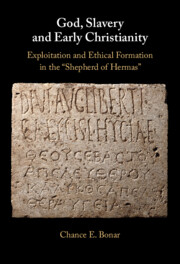
God, Slavery, and Early Christianity
- Divine Possession and Ethics in the Shepherd of Hermas
-
- Published online:
- 19 September 2025
- Print publication:
- 09 October 2025
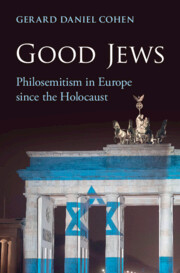
Good Jews
- Philosemitism in Europe since the Holocaust
-
- Published online:
- 19 September 2025
- Print publication:
- 07 August 2025

Racial Justice in American Land Use
-
- Published online:
- 19 September 2025
- Print publication:
- 09 October 2025
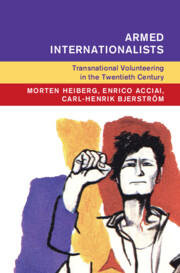
Armed Internationalists
- Transnational Volunteering in the Twentieth Century
-
- Published online:
- 19 September 2025
- Print publication:
- 09 October 2025

The Pseudo-Clementine Tradition
- The Hermeneutics of Late-Ancient Sophistic Christianity
-
- Published online:
- 19 September 2025
- Print publication:
- 16 October 2025
-
- Element
- Export citation
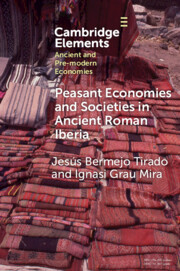
Peasant Economies and Societies in Ancient Roman Iberia
-
- Published online:
- 19 September 2025
- Print publication:
- 09 October 2025
-
- Element
- Export citation

Restricting Liberty to Prevent Terrorism
- The Belgian and the UK Approaches to Direct Restrictions to the Right to Liberty to Prevent Terrorism
-
- Published by:
- Intersentia
- Published online:
- 18 September 2025
- Print publication:
- 07 January 2025
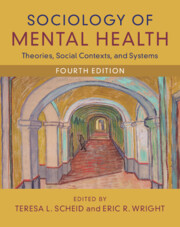
Sociology of Mental Health
- Theories, Social Contexts, and Systems
-
- Published online:
- 18 September 2025
- Print publication:
- 24 July 2025
-
- Textbook
- Export citation

The Yoruba Are on a Rock
- Recaptured Africans and the Orisas of Grenada
-
- Published online:
- 18 September 2025
- Print publication:
- 09 October 2025

A Hague Convention on Jurisdiction and Judgments
- Why did the Judgments Project (1992-2001) Fail?
-
- Published by:
- Intersentia
- Published online:
- 18 September 2025
- Print publication:
- 29 March 2024

The Right to Identity and Access to Information on Genetic Origin and Parentage
-
- Published by:
- Intersentia
- Published online:
- 18 September 2025
- Print publication:
- 02 April 2024

The Principles of European Family Law Revisited
-
- Published by:
- Intersentia
- Published online:
- 18 September 2025
- Print publication:
- 30 January 2024

The Role of Legal Precedent in Private Law
- A Comparative Study
-
- Published by:
- Intersentia
- Published online:
- 18 September 2025
- Print publication:
- 21 June 2024

Philosophy of Cosmology and Astrophysics
-
- Published online:
- 18 September 2025
- Print publication:
- 16 October 2025
-
- Element
- Export citation
Introduction
-
-
- Book:
- Ockham’s <i>Summa Logicae</i>
- Published online:
- 04 September 2025
- Print publication:
- 18 September 2025, pp 1-18
-
- Chapter
- Export citation
Case 38: - Insomnia Disorder
- from Part II: - Topical MCQs
-
- Book:
- Practise Psychiatry
- Published online:
- 04 September 2025
- Print publication:
- 18 September 2025, pp 513-513
-
- Chapter
- Export citation
Part II - Lessons from the Field
-
- Book:
- Rethinking the Lawyers' Monopoly
- Published online:
- 04 September 2025
- Print publication:
- 18 September 2025, pp 105-200
-
- Chapter
-
- You have access
- Open access
- HTML
- Export citation
Chapter 11 - Colonial-Era Mixed Courts, Early Euro-Lawyers, and EU Law as Constitutional Law
- from Part II - Actors
-
-
- Book:
- Colonialism and the EU Legal Order
- Published online:
- 14 October 2025
- Print publication:
- 18 September 2025, pp 247-264
-
- Chapter
-
- You have access
- Open access
- HTML
- Export citation
Case 28: - Opioid Use Disorder
- from Part 1: - Vignettes
-
- Book:
- Practise Psychiatry
- Published online:
- 04 September 2025
- Print publication:
- 18 September 2025, pp 271-274
-
- Chapter
- Export citation
